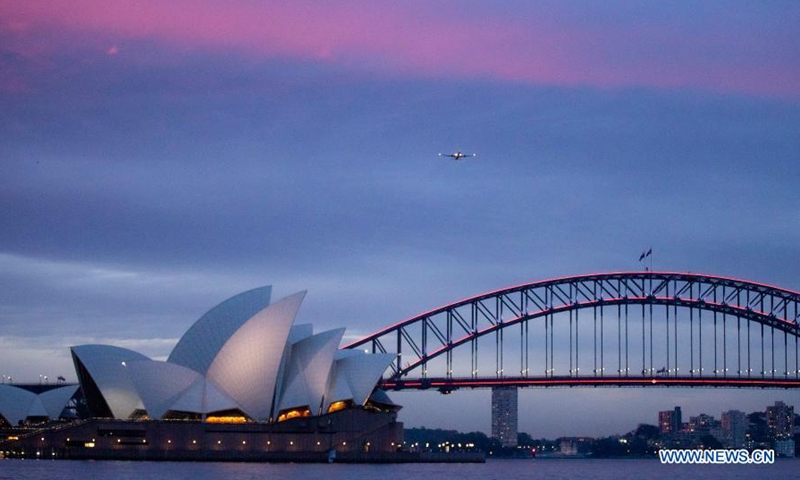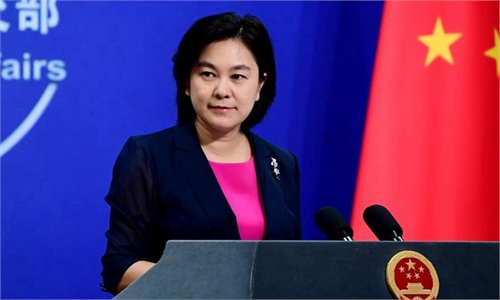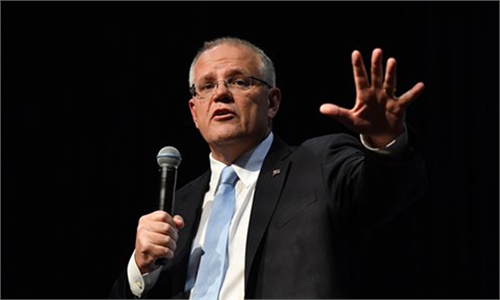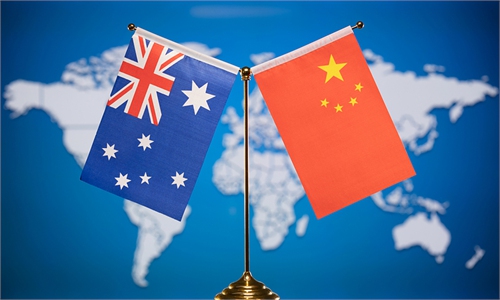
Sydney, Australia Photo: Xinhua
Although Australia is expected to report a GDP rebound in the third quarter over the previous quarter, the impact on its economic growth from its severely frayed political and economic ties with China is yet to be felt.
Australia will report third-quarter GDP data on Wednesday, and it is estimated that its economy staged a rebound in the quarter ended in September like many countries around the world, as business reopened despite a second wave of COVID-19 crisis in the state of Victoria.
Some analysts estimate growth of 2.5 percent for the quarter, while Moody's Analytics put the figure at 1.45 percent.
Australia fell into its deepest economic slump on record, its first downturn since 1991, in the second quarter with a contraction of 7 percent as coronavirus lockdowns paralyzed business activity.
However, despite a recovery in the third quarter, analysts said Australia's economic recovery in 2020 and 2021 will be impeded by its frayed political and trade ties with China.
Yu Lei, a chief research fellow at the Research Center for Pacific Island Countries at Liaocheng University, estimated that the Australian economy will grow 1.5-2 percent for 2020, way lower than the forecasts of 2.9-3 percent made at the end of 2019.
Song Wei, an associate research fellow at the Chinese Academy of International Trade and Economic Cooperation under the Ministry of Commerce, said compared with slowing investment and suspended global travel, what's worse for Australia is the Scott Morrison administration's approach in the face of a pandemic unseen in decades, and the way it spoils its relations with its top export destination.
"Some countries, including China, banked on a stimulus policy to revive virus-hit economies but the Morrison administration unfortunately banked on a nationalist approach to cope with the crisis," Song told the Global Times on Monday.
The Morrison administration's effort to deflect attention from its domestic crisis and smear China is one of the main reasons for the continuously escalating tension with China, Song said, noting the frayed ties between China and Australia will no doubt have a negative impact on Australia's growth outlook.
According to some estimates, China's economic retaliation against Australian exports — from barley to lobster and wine — has so far amounted to over 1 percent of its total exports to China. China accounts for more than one-third of the export dollars earned by Australia.
"The all-important iron ore trade has not been affected at this stage while trade friction involving other items such as coal is just starting. So the impact wasn't fully felt during the third quarter," Yu told the Global Times.
Yu said the impact will be more acutely felt in 2021.
The country's share in China's iron ore imports decreased to 57 percent in October from a high of 68 percent in May, data from the industry portal Beijing Lange Steel Information Research Center showed.
From January to October, Australian iron ore accounted for 61.4 percent of China's total iron ore imports, down 0.7 percentage points from the same period in 2019.
Meanwhile, 50 vessels or more carrying coal from Australia were reportedly unable to get customs clearance over quality issues.
A report by theconversation.com, a media outlet based in Australia, suggested an all-out trade war with China would cost Australia 6 percent of its GDP, in a simulation in which 95 percent Australia-China trade is cut off.
Despite an anticipated 9.5-percent increase in the demand for coal-fired electricity in 2021, China's coal imports in 2021 will likely decline, given that curbs on Australian coal may persist, according to a report by brokerage firm China International Capital Corp.




